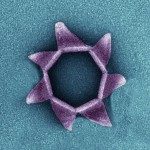Lien vers Pubmed [PMID] – 12167360
Theor Popul Biol 2002 Jun;61(4):391-408
Traditional views on deep evolutionary events have been seriously challenged over the last few years, following the identification of major pitfalls affecting molecular phylogeny reconstruction. Here we describe the principally encountered artifacts, notably long branch attraction, and their causes (i.e., difference in evolutionary rates, mutational saturation, compositional biases). Additional difficulties due to phenomena of biological nature (i.e., lateral gene transfer, recombination, hidden paralogy) are also discussed. Moreover, contrary to common beliefs, we show that the use of rare genomic events can also be misleading and should be treated with the same caution as standard molecular phylogeny. The universal tree of life, as described in most textbooks, is partly affected by tree reconstruction artifacts, e.g. (i) the bacterial rooting of the universal tree of life; (ii) the early emergence of amitochondriate lineages in eukaryotic phylogenies; and (iii) the position of hyperthermophilic taxa in bacterial phylogenies. We present an alternative view of this tree, based on recent evidence obtained from reanalyses of ancient data sets and from novel analyses of large combination of genes.

